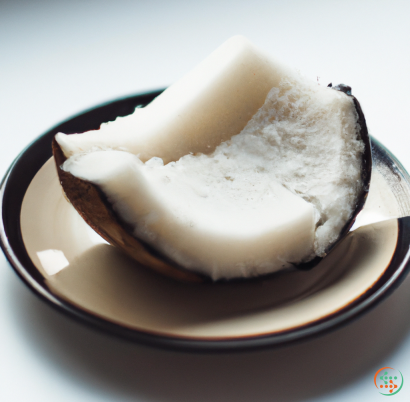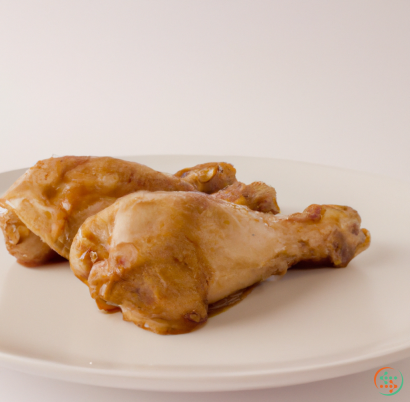Turkey Eggs
A turkey egg is a type of egg that comes from the domesticated turkey bird. This poultry, known for its delicious meat, has a white or slightly off-white egg that has a thicker shell than that of a chicken and is usually much larger in size. In the United States and in other countries, these eggs, usually produced by the female of the species, are seen as a popular food source and often found in supermarkets to be purchased or used in recipes or eaten as is.
Turkey eggs are white, generally with a slightly off-white shade and larger in size than that of a chicken egg. The size of the egg can vary between shapes and sizes depending on the breed of turkey, but on average a single egg can measure 3 to 4.5 inches in length and tend to weigh 1.5 to 2.5 ounces. The hardest shell part of the egg is called the “bloom”, a protective coating found on the exterior that safeguards the content of the egg, keeping them safe from bacteria and other external influence.
The egg has two main parts: the yolk and the white. The yolk is the yellow round, fat-rich portion of the egg, and it is commonly the first feed source given to newly-hatched turkeys. The yolk provides energy, fats and proteins and provides numerous important vitamins. The white, or albumen, is virtually fat-free and mainly composed by water. It includes around 90% of the egg’s total protein content and provides numerous beneficial vitamins and minerals. Both the yolk and the white contain several vitamins, such as vitamins A, D, E, B12 and riboflavin, as well as minerals, like potassium and calcium, that are essential for a balanced and healthy diet.
Nutrition-wise, the content of a single turkey egg is similar to a chicken egg; however, turkey eggs typically have slightly higher levels of certain beneficial fat-soluble vitamins, like vitamin A, as well as other minerals, like zinc, phosphorus and magnesium. This makes consuming a single turkey egg a great way for people to gain a boost in their daily nutrition. Plus, the extra bit of protein helps to build muscle and satisfy hunger, making them a great snack when needed.
Turkey eggs are commonly found in many supermarkets and markets. They are often sold with their bloom still on, as it will help to keep them fresh. It is best to purchase the eggs before they reach the expiration date indicated in the packaging. When preparing an egg, it is recommended to break the egg carefully as to not damage the bloom, although cracking the thin part of the eggshell first is also known to help make the job easier.
Overall, turkey eggs are packed with nutrition, being an excellent source of important vitamins and minerals and surpassing the content of a regular chicken egg in some cases. As a result, this poultry egg is more and more becoming a popular item seen in many supermarkets, the white or slightly off-white egg making a great addition to any recipe or even just as a snack on its own.
The Anatomy of a Turkey Egg: How It Travels from the Nest to a Thanksgiving Dinner Plate
At the heart of a traditional Thanksgiving dinner is a roasted turkey, supported by plentiful side dishes. Yet, before the turkey even reaches the oven, a critical part of the process occurs – the egg travels from the mother turkey’s nest to a dinner plate. This post will explore how the turkey egg develops and delineate its travel to the dinner plate.
To start, this post will discuss the anatomy of the turkey egg. The egg begins to form in the mother turkey via its reproductive system. This system contains the ovary, oviduct, shell gland, and uterus, all of which collectively produce and transport the egg yolk and egg white. Inside the egg are two protective layers that surround its complex internal structure. This structure consists of the outer hard shell, the egg membrane, and the albumen, or egg white, which covers the yolk. The shell is comprised of four distinct layers: Porematiga, cuticula, spongiosa, and palisada. These layers are permeable to various elements, such as oxygen and carbon dioxide, but not to bacteria and other pathogens which could spoil the egg. The second layer of protection is the egg membrane, which separates the shell from the albumen. The albumen contains a complex network of proteins and minerals, as well as air cells which help the chick to later breathe after it is born. Lastly, at the center of the egg yolk lies the yolk itself. This yellow substance is full of nutrients and minerals, and it is balanced in the middle of the albumen by two stalks known as chalazae.
Following egg formation inside the mother turkey, the egg is then encased in its protective shell and is ready to leave the mother’s body and begin its journey to the dinner plate. In a natural setting, the mother turkey will lay her egg in a nest that she has built for this purpose. The nesting process takes time, as the mother constructs the nest out of branches, twigs, leaves, and other materials. Once the egg is placed within the nest, the mother turkey incubates it with her body heat over the course of eighteen days. During this period, the embryo inside the egg grows and matures. As it matures, the egg also requires a certain amount of environmental moisture and temperature to remain viable.
The eggs are then collected and transferred directly to a poultry farm where they are placed in heated incubators. Within the incubator, the eggs are rotated regularly and the temperature and humidity are adjusted accordingly to replicate the conditions the eggs were exposed to in the wild. This helps to ensure the eggs have the best opportunity to hatch. After the eggs have been placed in the incubator, it takes about three weeks for them to fully develop. The egg starts to develop feathers and wings, and at some point, the chick begins to peck its way through the shell of the egg as it prepares for hatching.
Once hatched, the chicks are fed a diet that includes grains, minerals, and vitamins to help them grow. The chicks are also monitored for temperature and health, as changes in either can quickly lead to bacterial or viral infections. As the chicks continue to grow, they are moved from their initial nesting area to larger enclosures which provide more space to spread their wings and explore.
When the chicks reach eight weeks of age, they are moved yet again, this time to a slaughterhouse where they will be processed and prepared for the market. First, the chicks are stunned using an electric current, and then their feathers are removed in preparation for the final steps. Before any packaging of the turkeys can occur, they are inspected and the parts that meet industry standards are separated from the other parts. After this process is done, the turkeys are placed in sealed packages and sent to grocery stores and markets.
Finally, the turkey on a dinner plate is ready for preparation and cooking. When attending to the bird, cooks must take suitable safety precautions. This includes washing and sanitizing all surfaces and tools used during the cooking process, and ensuring that the turkey is fully cooked before consuming.
In conclusion, this post has provided an overview of the anatomy of a turkey egg and the journey it takes from the nest to a dinner plate. The turkey egg contains a complex series of components, from its protective shell and membrane, to its albumen and yolk. After it is laid, the egg undergoes a transformation from an unfertilized embryo to a mature turkey under the care of the mother. Once the chicks are sufficiently grown, they move to a processing facility where they are processed, packaged, and eventually sent to markets. When the bird is ready, it can then be prepared and cooked in the kitchen, where proper safety measures should be taken beforehand. In this way, the turkey egg completes its full cycle – from in the mother’s nest and through the different stages of processing and preparation, it eventually arrives on the dinner plate just in time for Thanksgiving dinner.
| Vitamin A | 0.166 mg | |
| Vitamin B1 | 0.11 mg | |
| Vitamin B2 | 0.47 mg | |
| Vitamin B3 | 0.02 mg | |
| Vitamin B5 | 0.00189 grams | |
| Vitamin B6 | 0.13 mg | |
| Vitamin B9 | 0.071 mg | |
| Vitamin B12 | 0.00169 mg |
| Calcium | 0.099 grams |
Daily Value 1.3 g
|
| Iron | 0.0041 grams |
Daily Value 0.018 g
|
| Magnesium | 0.013 grams |
Daily Value 0.4 g
|
| Phosphorus | 0.17 grams |
Daily Value 1.25 g
|
| Potassium | 0.142 grams |
Daily Value 4.7 g
|
| Sodium | 0.151 grams |
Daily Value 2.3 g
|
| Zinc | 0.00158 grams |
Daily Value 0.011 g
|
| Copper | 0.06 mg |
Daily Value 0.9 mg
|
| Manganese | 0.04 mg |
Daily Value 0.0023 g
|
| Selenium | 0.0343 mg |
Daily Value 0.055 mg
|
| Tryptophan | 0.219 grams | |
| Threonine | 0.672 grams | |
| Isoleucine | 0.855 grams | |
| Leucine | 1.201 grams | |
| Lysine | 0.924 grams | |
| Methionine | 0.442 grams | |
| Cystine | 0.326 grams | |
| Phenylalanine | 0.773 grams | |
| Tyrosine | 0.569 grams | |
| Valine | 0.985 grams | |
| Arginine | 0.876 grams | |
| Histidine | 0.33 grams | |
| Alanine | 0.799 grams | |
| Aspartic Acid | 1.357 grams | |
| Glutamic Acid | 1.742 grams | |
| Glycine | 0.455 grams | |
| Proline | 0.543 grams | |
| Serine | 1.04 grams |
| Total Sugars | 0.131141 grams |
per 100g
|
| Myristic acid (14:0) | 0.04 grams |
|
| Palmitic acid (16:0) | 2.72 grams |
|
| Stearic acid (18:0) | 0.88 grams |
|
| Total Saturated fatty acids: | 3.64 g | |
| Oleic acid (18:1) | 3.9 grams |
|
| Palmitoleic acid (16:1) | 0.67 grams |
|
| Total Monounsaturated fatty acids: | 4.57 g | |
| Linolenic acid (18:3) | 0.08 grams |
|
| Linoleic acid (18:2) | 1.17 grams |
|
| Total Polyunsaturated fatty acids: | 1.25 g | |
| Cholesterol | 0.93 grams |
|
| Total Sterols: | 0.93 g | |







